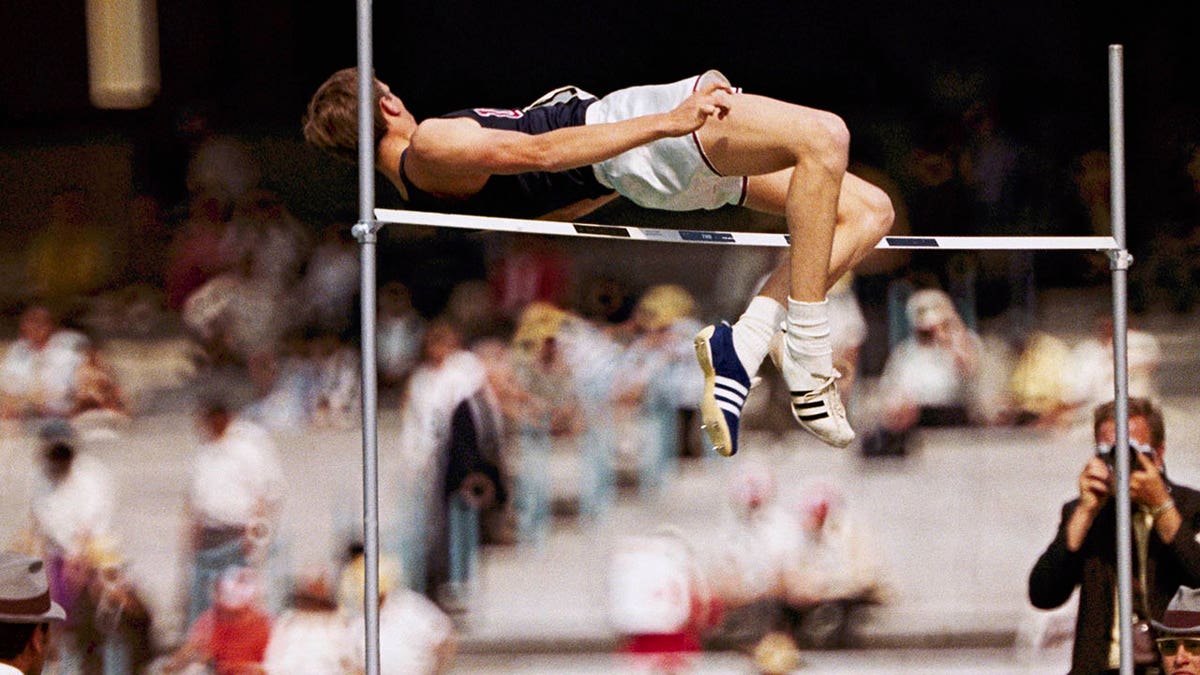Fox News Flash top sports headlines for March 13
Fox News Flash top sports headlines are here. Check out what's clicking on Foxnews.com.
Dick Fosbury, an Olympic gold medalist high jumper known for revamping the technical discipline of the sport, died Sunday, his publicist said. He was 76.
Fosbury died after a recurrence of lymphoma, his publicist Ray Schulte said.
The Oregon native was known for introducing the "Fosbury Flop" to the world of high jump. In the 1968 Olympics, he used the revolutionary move to win a gold medal over fellow America Ed Caruthers and the Soviet Union's Valeriy Skvortsov.
CLICK HERE FOR MORE SPORTS COVERAGE ON FOXNEWS.COM

American high jumper Dick Fosbury clears the bar on his third attempt at the 1968 Summer Games in Mexico City. Fosbury won the gold medal with this jump, clearing 7 feet, 4 1/4 inches, which also set Olympic and American records. (Getty Images)
By the next Olympics, 28 of the 40 jumpers were using the technique. The 1976 Olympics became the final Games where an athlete would win with a technique other than the "Fosbury Flop." Before Fosbury’s move became the norm, high jumpers cleared the bar by running parallel to the bar, then using a straddle kick to leap over before landing with their faces pointed downward.
"The world legend is probably used too often," Olympic legend Michael Johnson tweeted. "Dick Fosbury was a true LEGEND! He changed an entire event forever with a technique that looked crazy at the time but the result made it the standard."
GREG FOSTER, OLYMPIC MEDALIST AND WORLD CHAMPION HURDLER, DEAD AT 64

FILE - Gold medal winner Dick Fosbury raises his arm on the victor's podium of the Olympic stadium, Oct. 20, 1968, in Mexico City. (AP Photo/File)
Fosbury started to dabble with the technique as a high school athlete in Oregon. He took off at an angle, leaped backward, bent himself into a "J" shape to catapult himself over the bar and crash into the landing pit.
"I knew I had to change my body position, and that’s what started first the revolution, and over the next two years, the evolution," Fosbury told The Corvallis Gazette-Times in 2014. "During my junior year, I carried on with this new technique, and each meet I continued to evolve or change, but I was improving. My results were getting better."
Fosbury’s technique was initially panned as he was described as a fish flopping in a boat. But he liked the name "Fosbury Flop."
"It’s poetic. It’s alliterative. It’s a conflict," he previously said.

FILE - Dick Fosbury, of the United States, clears the bar in the high jump competition at the 1968 Mexico City Olympics. (AP Photo/File)
CLICK HERE TO GET THE FOX NEWS APP
Fosbury was inducted into the National Track and Field Hall of Fame in 1981.
The Associated Press contributed to this report.





















